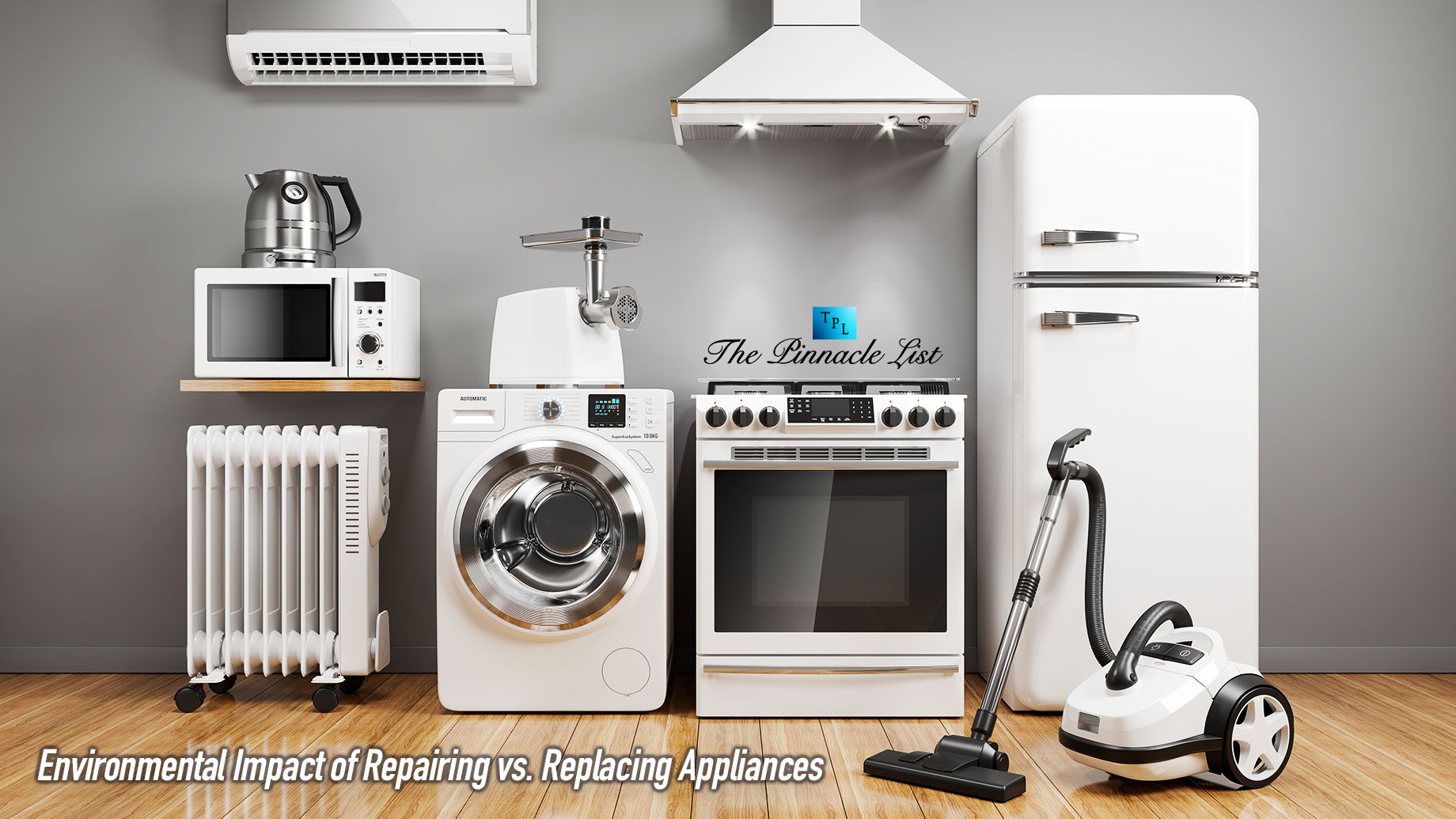Ever find yourself staring down the gullet of your garbage disposal, pondering life’s great mysteries? Like, “What’s the environmental impact of repairing vs. replacing this hunk of metal that cheerfully grinds my food waste into oblivion?” If you haven’t, let me tell you, you’re missing out on some top-tier conundrum entertainment. Let’s spin this garbage disposal contemplation into an epic tale of planetary proportions.
The Hero’s Entrance: Your Garbage Disposal
Let’s begin by introducing our protagonist: your humble garbage disposal. This isn’t just any kitchen appliance. No, this bad boy is the unsung hero of your culinary adventures. It’s there for every potato peel, every leftover spaghetti strand, every experimental recipe mishap.
But what happens when your garbage disposal—a.k.a. the MVP of your kitchen arsenal—starts making weird noises or flat-out quits? The dilemma: do you repair it or replace it? And more importantly, which option gives Mother Earth a high-five instead of a slap in the face?
Repair vs. Replace: Battle Grounds
Before we dive into the grand environmental impact showdown, let’s set the stage by understanding the basics.
The Repair Option
Repairing your garbage disposal is like giving it a little CPR (with maybe a side of duct tape and some elbow grease). The goal here is to extend the life of your trusty disposal, making it grind away for a few more years.
The Replace Option
On the flip side, replacing it means saying goodbye to your old friend and saying hello to a shiny new disposal. This could bring you fancy, updated features and perhaps the joy of a quieter grind, but at what environmental cost?

The Environmental Toll of Production and Disposal
Let’s put on our eco-warrior helmets and dig into the environmental nitty-gritty.
Raw Materials Extraction
To be honest, extracting raw materials is the real villain in our story. Mining ores for metals, drilling for plastic-producing petroleum, quarrying stones—none of these activities exactly scream “eco-friendly.”
When you opt to replace your garbage disposal, think of all those precious materials mined from the earth. Now, visualize all those machines guzzling fossil fuels during extraction. Houston, we have a problem.
Manufacturing Processes
Once raw materials are obtained, they must be processed. Imagine everything going through factories, which gobble up energy and churn out pollution along the way. Repairing an existing garbage disposal often involves fewer of these processes, thus less energy consumption and pollution.
Table: Manufacturing Impact Comparison
| Aspect | Repair | Replace |
|---|---|---|
| Raw Materials | Minimal | Significant |
| Energy Consumption | Lower | Higher |
| Pollution | Lower | Higher |
Transportation Emissions
Ah, the carbon footprint of moving stuff around the globe! New units need to be shipped from factories to warehouses, and eventually to your doorstep. Each mile adds a little more CO2 to the atmosphere. By repairing, you’re essentially dialing down on this entire logistical ballet.
Life Cycle Analysis: The Bigger Picture
Life Cycle Analysis (LCA) isn’t just a fancy term thrown around by academics in tweed jackets. It’s a comprehensive look at the environmental aspects and potential impacts associated with a product’s lifespan, from cradle to grave.
Cradle-to-Grave: Repairing
- Material Sourcing: Minor additional raw materials
- Manufacturing: Reduced need for new materials
- Usage: Prolonged functionality
- End of Life: Delayed disposal
Cradle-to-Grave: Replacing
- Material Sourcing: Significant new raw materials
- Manufacturing: Entirely new unit production
- Usage: Often more efficient but starts anew
- End of Life: Immediate disposal of the old unit
Table: Cradle-to-Grave Comparison
| tage | Repairing | Replacing |
|---|---|---|
| Material Sourcing | Minimal | Significant |
| Manufacturing | Partial | Full |
| Usage | Extended | Reset |
| End of Life | Delayed Disposal | Immediate Disposal |
Waste Generation: Trash Talkin’
E-Waste Concerns
Electronic waste, or e-waste, is the toxic byproduct of our gadget-obsessed culture. It includes hazardous materials like lead, mercury, and arsenic. Yeah, that’s right—your old garbage disposal could be a toxic time bomb if improperly discarded.
Repair Benefits
Repairing your disposal can help curb the growing e-waste problem. You keep one more item out of the landfill, reducing the toxic load on our planet. Plus, many crucial components inside a disposal can still be reused.
Replace Pitfalls
Replacing your disposal adds to the e-waste mountain. Sure, recycling programs exist, but do you always recycle your electronics? Be honest. Exactly.
Energy Consumption: The Power Struggle
Instant Gratification vs. Long-Term Benefit
Do newer models have energy efficiency on their side? Often, yes. Modern disposals can be more energy-efficient compared to older ones. But, as with everything, this comes at the initial cost of production.
The Energy See-Saw
By opting to repair, you save on the energy that would have been consumed in manufacturing and shipping a new unit. But, newer models might consume less energy in the long run. Balancing this see-saw can be tricky.
Table: Energy Consumption Comparison
| Factor | Repairing | Replacing |
|---|---|---|
| Initial Energy Expenditure | Lower | Higher |
| Long-Term Energy Use | Depends on current model’s age | Often lower with newer models |

The Hidden Costs: Beyond the Wallet
The Emotional Toll
Yes, emotions matter. Think about it. Your wallet screams when you need to buy a new unit, but it might weep with the joy of extending the life of the existing one. Go ahead, be sentimental. Your garbage disposal deserves it.
Labor and Expertise
Repairing can be less labor-intensive and usually requires less technical expertise compared to installing a new unit. Fewer skills required means fewer resources spent on technician training and deployment. Talk about an environmental life hack!
Making the Right Choice: To Repair or Replace?
Assess the Condition
First things first—how bad is the damage? Some common problems like clogs, leaks, or strange noises might be easily fixable. Get a professional opinion before deciding to send your disposal to kitchen appliance heaven.
Cost-Benefit Analysis
Consider the costs involved. Repairing might seem cheaper upfront, but if your disposal is a frequent flyer in the repair shop, it might be time for an upgrade. Calculate the long-term costs—both financial and environmental.
Read Up on New Tech
Not all new garbage disposals are created equal. Some are ultra-efficient, quieter, and come with eco-friendly features that might actually make replacement a greener option. Do your homework and don’t just pick the one with the shiniest finish.

Conclusion: The Epic Showdown’s Verdict
After this Olympian debate, what’s the final word? Drum roll, please.
Choosing between repairing and replacing your garbage disposal involves more than just flipping a coin. It demands an in-depth look at the environmental repercussions, financial outlays, and emotional investments. Repairing tends to be the hero of the environmental tale, especially if your unit isn’t a complete relic of the past.
If you find your garbage disposal is beyond saving, opting for an eco-friendly, energy-efficient new model can mitigate some of the environmental costs associated with replacement. Be judicious in disposal and recycling practices to keep that environmental footprint as dainty as possible.
In the end, your garbage disposal might not be a rockstar, but it sure plays a pivotal role in the grand concert of your kitchen life. Let’s give it the consideration (and repair) it deserves. And who knows, maybe the cosmos will reward you with a perfectly unclogged sink as you weigh the balance of the planet on those sturdy disposal blades.
